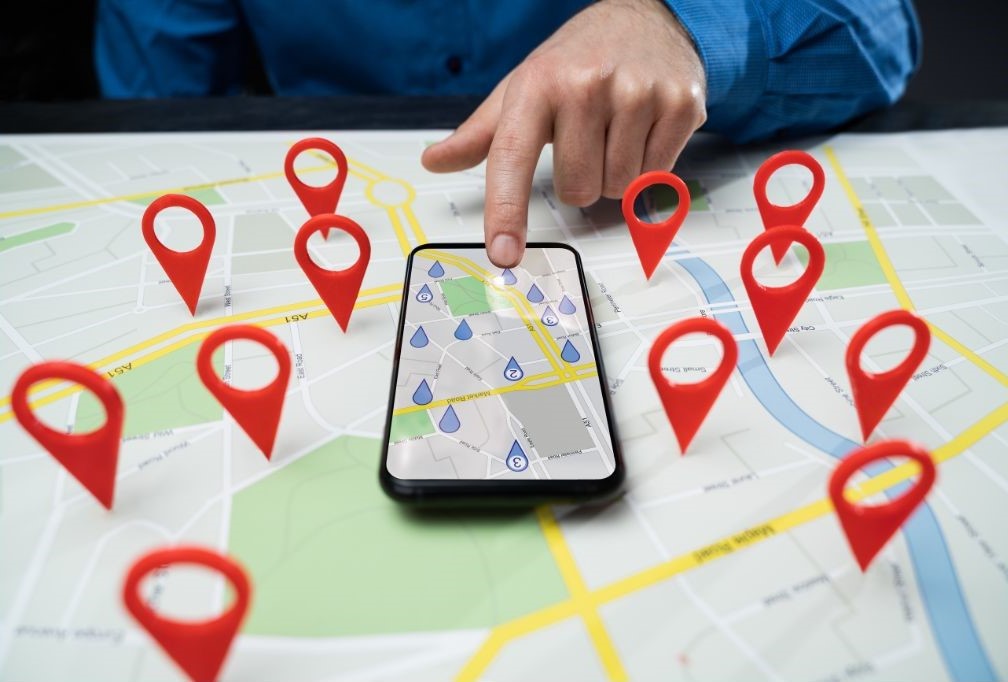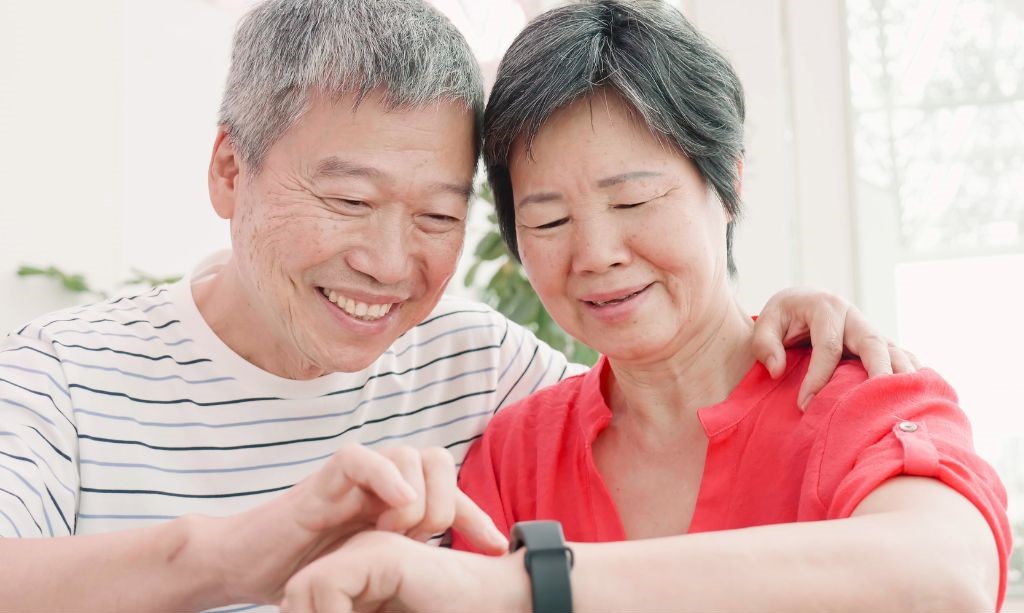Ever typed a symptom into Google and found yourself diving deep into a world of medical information? You’re not alone. In today’s digital age, many embark on online quests for health insights.
This section unravels the transformative journey of patients, powered by Google. From demystifying complex medical jargon to offering tools for health tracking, Google has been at the forefront of making healthcare more understandable and accessible.
Whether you’re a patient seeking clarity, a doctor aiming to empower, or a physiotherapist bridging knowledge gaps, discover how Google has reshaped the patient experience in India, turning queries into quality care.
Decoding Medical Jargon: Simple Answers to Complex Questions

We’ve all been there. You leave the doctor’s office with a prescription in hand and a string of medical terms buzzing in your head. Terms like “bilateral prophylaxis” or “idiopathic thrombocytopenic purpura” can sound like a foreign language to many. Enter Google, the modern-day medical translator.
For patients, understanding a diagnosis or treatment plan is crucial. It’s not just about knowing what’s happening to your body, but about being an active participant in your healthcare journey. Google Search has become an invaluable tool in this regard. By simply typing in those complex terms, you’re presented with easy-to-understand explanations, often accompanied by visuals or videos, making the medical maze a bit more navigable.
But it’s not just patients who benefit. Even for seasoned professionals like doctors and physiotherapists, Google acts as a quick refresher. Let’s face it, the medical field is vast, and no one can remember every term or condition. Having a reliable source to turn to ensures that healthcare providers can communicate effectively with their patients, ensuring clarity and trust.
Moreover, Google’s commitment to accuracy means that the information is sourced from reputable medical institutions and professionals. So, whether you’re a patient trying to understand a new diagnosis or a doctor explaining a treatment plan, you can be confident that the information is both reliable and easy to grasp.
In a country as diverse as India, where medical terms might not always be familiar, and language barriers can exist, Google’s role in breaking down medical jargon is truly transformative. It bridges the gap between complex medical language and everyday understanding, ensuring that everyone, regardless of their medical background, is on the same page.
Personal Health Tracking: Beyond the Search Bar
In today’s fast-paced world, taking charge of one’s health has never been more crucial. And while Google Search has been a beacon for medical queries, Google’s offerings don’t just stop there. The tech giant has delved deeper, providing tools that allow individuals to track and manage their health with ease.
Have you ever wished for a personal health dashboard? Google Fit, a health-tracking platform, offers just that. It’s not merely about counting steps or monitoring heart rate. It’s a comprehensive tool that integrates various health metrics, from sleep patterns to nutrition, giving you a holistic view of your well-being. For those with specific health conditions, such as diabetes or hypertension, such platforms can be game-changers, helping monitor critical health parameters and even alerting when things go amiss.
But the beauty of these tools lies in their integration capabilities. Many physiotherapists and doctors now recommend wearable devices that sync seamlessly with apps like Google Fit. This means that your health data, from daily exercises to medication reminders, is consolidated in one place, making it easier for you to share with your healthcare provider if needed.
In India, where the healthcare landscape is rapidly evolving, such tools are invaluable. They empower individuals to be proactive about their health, making informed decisions based on real-time data. For healthcare professionals, it offers a more in-depth insight into a patient’s daily habits and health metrics, allowing for more personalized care.
In essence, Google’s foray into personal health tracking goes beyond just providing information. It’s about empowerment, ensuring that every individual, whether in bustling Mumbai or rural Rajasthan, has the tools and knowledge to lead a healthier life.
The Importance of Location: Finding Nearby Medical Facilities
Imagine feeling unwell in an unfamiliar city or needing a specialized medical facility while on vacation. The anxiety of the unknown can be daunting. But thanks to Google, finding a nearby medical facility, be it a hospital, clinic, or pharmacy, is just a few taps away.

Google Maps has revolutionized the way we navigate our world, and its impact on healthcare accessibility in India is profound. By simply typing “nearest hospital” or “pharmacy near me,” you’re presented with a list of options, complete with directions, contact details, and often, reviews from other users. This immediate access to information can be a lifesaver, quite literally, in emergencies.
For physiotherapists and doctors, this feature is equally beneficial. Recommending a nearby diagnostic center or pharmacy to a patient becomes hassle-free. Plus, with the added feature of real-time traffic updates, guiding patients to the quickest route, especially in bustling cities like Delhi or Bangalore, ensures timely medical attention.
But it’s not just about emergencies. For regular health check-ups, therapy sessions, or even finding a specialized medical practitioner, Google’s location-based services have made the process straightforward and efficient. In a vast country like India, where healthcare facilities can vary greatly between urban and rural areas, such tools play a pivotal role in bridging the accessibility gap.
Moreover, the integration of Google My Business allows medical facilities to provide essential details like operating hours, available services, and even virtual tours. This transparency ensures that you, as a patient or a medical professional, can make informed decisions based on your specific needs.
In a nutshell, Google’s emphasis on location-based services has transformed the way we access healthcare in India. It’s not just about finding a place; it’s about ensuring that quality medical care is always within reach, no matter where you are.
The Role of Digital Tools in Monitoring Patient Progress
In the realm of healthcare, tracking a patient’s progress isn’t just about noting down symptoms or measuring vital stats. It’s a comprehensive process, one that requires continuous monitoring, feedback, and adjustments. And in this digital age, Google, along with other tech giants, has stepped up to the plate, offering a suite of tools that make this task not just easier, but more efficient.
Consider the scenario of post-operative care. Once you leave the hospital, how do doctors ensure you’re following the prescribed rehabilitation exercises? Or for physiotherapists, how do they track the effectiveness of a particular therapy over time? Digital tools, integrated with platforms like Google Fit or Google Health, provide real-time data, allowing healthcare professionals to monitor progress, adjust treatment plans, and provide timely feedback.

These tools aren’t just limited to tracking physical metrics. With the rise of mental health awareness in India, platforms that monitor mood, stress levels, and sleep patterns are becoming increasingly popular. By providing a holistic view of a patient’s well-being, doctors and therapists can tailor treatments more effectively.
For patients, these digital tools are empowering. They’re no longer passive recipients of care but active participants in their health journey. With easy-to-understand dashboards and progress charts, you can see the impact of treatments, lifestyle changes, or therapies, making you more invested in your health outcomes.
Moreover, in a country as vast as India, where frequent in-person check-ups might not always be feasible, especially in remote areas, these digital tools bridge the gap. They ensure continuity of care, making distance a non-issue in the patient-doctor relationship.
In conclusion, the integration of digital tools in monitoring patient progress is reshaping the healthcare landscape in India. It’s a testament to how technology, when used right, can enhance care, improve outcomes, and empower both patients and healthcare providers.
Navigating the Web: Complementing, Not Replacing Medical Expertise

Ah, the wonders of the internet! One moment you’re looking up a recipe for butter chicken, and the next, you’re deep into a forum discussing the symptoms of a rare tropical disease. It’s undeniable; the web is a treasure trove of information, especially when it comes to health. But here’s a gentle reminder: while Google can provide answers, it doesn’t hold a medical degree.
Think about it. You might feel a twinge in your knee and decide to search for causes. Within minutes, you’re bombarded with a list ranging from a simple muscle strain to something more ominous. It’s easy to get overwhelmed, and even easier to misinterpret. And that’s where the danger lies. Using the internet as your sole diagnostic tool can lead you down a rabbit hole of confusion and unnecessary anxiety.
Now, don’t get this wrong. The internet is a fantastic place to educate oneself, to understand symptoms better, or even to find exercises to alleviate minor aches. But it’s essential to remember that every individual is unique. What might be a remedy for one could be detrimental to another.
Physiotherapists and doctors spend years honing their craft, understanding the intricacies of the human body, and keeping up with the latest in medical research. Their expertise is tailored to look beyond just the symptoms, delving into your medical history, lifestyle, and other nuances that a search engine might miss.
Plus, there’s something inherently comforting about sitting across from a professional, discussing your concerns, and receiving guidance. It’s a human touch, a personal connection that a screen can’t replicate. So, the next time you’re tempted to self-diagnose based on a few web articles, pause. By all means, use the internet to inform and empower yourself, but always, always complement it with a visit to a professional. Because when it comes to health, a real-life consultation trumps a virtual one, every single time.
Read More: